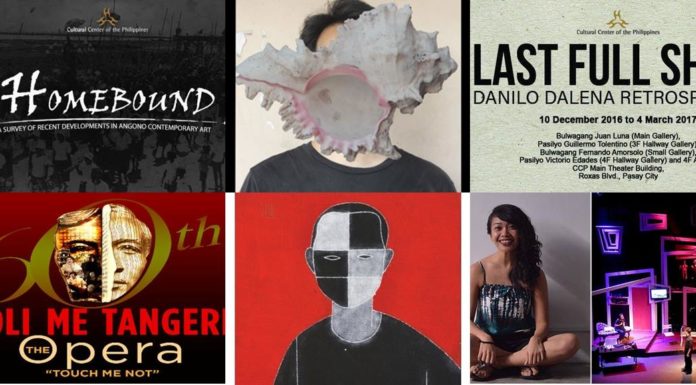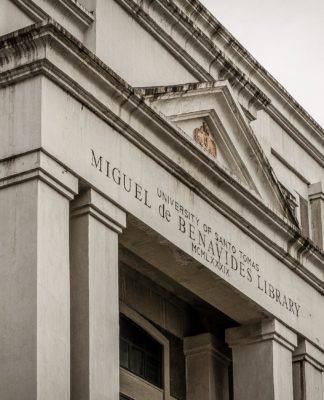THE RETIRED Archbishop of Manila, Cardinal Gaudencio Rosales, has reminded Catholics that Christmas is about Jesus Christ, not Santa Claus. And even if Santa Claus is a corruption from Saint Nicholas, a saint in the ancient Roman martyrology known for giving gifts to the poor during Christmas, he’s been appropriated and debased by global capitalism. And yes, those who light up at the mention of Santa Claus don’t know he’s a Christian saint. They’re corrupted too in their blissful ignorance by the commerce of Christmas.
Christmas, we must be reminded, is a “holiday”: It’s a “holy day.” Liberals and secularists demand that government officials chuck greeting “Merry Christmas,” because of its alleged sectarian connotation, and instead greeting “Happy Holidays,” ignorant that “holidays” is just shorthand for a phrase considered sacred and yes, sectarian.
In all its sanctity and glory, Christmas has always associated itself with the spirit of faith, hope, and love—a celebration commemorating our Savior’s humility in abjectly becoming human, being born in a manger, subjecting himself to the humiliation of the crucifixion, and resurrecting, so that we can be saved and we can share in His divinity. Liberal atheists call this a myth, but just the same insist on their right to celebrate Christmas. In contrast to those blissfully unaware about the Christian roots of Santa Claus, these so-called free thinkers are arrogant, arrogant in their ignorance. And mercenary, since while they don’t care about spiritual dimensions of Christmas, they insist on celebrating it since they don’t want to miss out on the materialistic fun its celebration entails.
The so-called myth of Christmas is in its mystery, reflected in the Tagalog greeting, “Maligayang Pasko.” Unique among Christmas greetings, the Tagalog word for Christmas is “pasko,” not, for example, “navidad,” or “birthday” in Spanish. It came from the Latin “pascha,” which is the Passover of Judaism and the Easter of Christianity. It literally means “lamb” or “sheep.” What all of this means is that for the Filipino, Christmas is both about the Nativity and the Resurrection. For the Filipino, both Christmas and Easter are birthdays. As the Tagalogs would say, Christmas is “Pasko ng Pagkasilang” while Easter is “Pasko ng Pagkabuhay.”
Such is the mystery of Christmas—God becoming a lamb to be sacrificed for the salvation of the world! Secularists and liberal thinkers call it a myth, but betray their ignorance of myths because Western and Oriental myths do not have the conceit of Christianity. While the Greek, Roman, Indian and Persian myths talk about the gods and goddesses, and the superhuman feats of demi-gods and of kings, emperors and potentates, the Christian mythology talks about God subjecting himself to the humiliation of becoming human, without superhuman qualities, working as a carpenter, not a king or prince, and allowing himself to be convicted in a kangaroo court and to be nailed on the cross. All of this he did to save humanity! Atheists call this a myth despite their ignorance of mythologies. Christians of course call it a mystery, the ultimate mystery.
But the way Christians have been celebrating Christmas, it appears they don’t care about the mystery of Christmas; all they care about is its materialism. In the Philippines especially, Christmas has become an alibi for children to ask for aguinaldo from their parents and godparents; it becomes an occasion for base values to be cultivated. Let us not also forget how profit-oriented corporations would always see the celebration as an opportunity to maximize their profits. They come up with marketing gimmickry to lure shoppers to part with their 13th month pay and Christmas bonus and for them to splurge on goodies and gifts, so that the merry ringing of the Christmas bells has been replaced by the hollow ringing of the cash register. Corporations have done the same with other occasions of religious significance—Valentine’s Day, All Saints Day and All Souls Day, etc. Filipinos now celebrate Christmas in the malls; in fact they go to Sunday Masses there. For Filipinos, Christmas is consumerism, hollowed of its spiritual meaning, emptied of its cash. The Santa Claus red has become the Coca-cola crimson.
But still, Filipinos carry out religious traditions that retain their Christian essence. Christmas has always been a catalyst for restoring broken relationships. It has become a powerful occasion for enemies to bury the hatchet. Let us not also forget how Christmas serves as an occasion to reaffirm the bond of every Filipino family. The pressures and hardships of everyday toil are set aside to make time for renewal of filial ties. And now that tens of thousands of Filipinos are spread out across the globe as economic migrants, Christmas has becomes an occasion for them to come home and re-establish kinships and friendships, to re-establish roots with the motherland.
As December 25 is fast approaching, let us learn to look past the superficial façade of Christmas. In the end, it is still a religious event that should be celebrated with solemnity and faith, with appreciation for the love and sacrifice that God has made on our behalf. Let us celebrate Christmas with prayer, with God and fellowman.

















